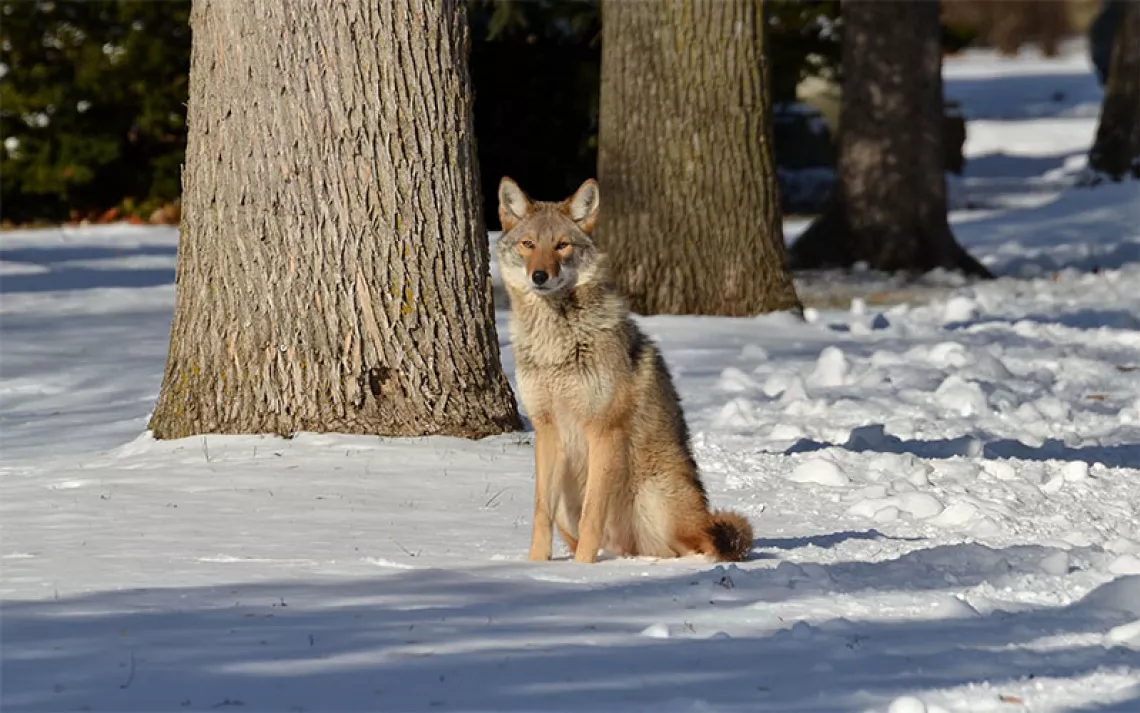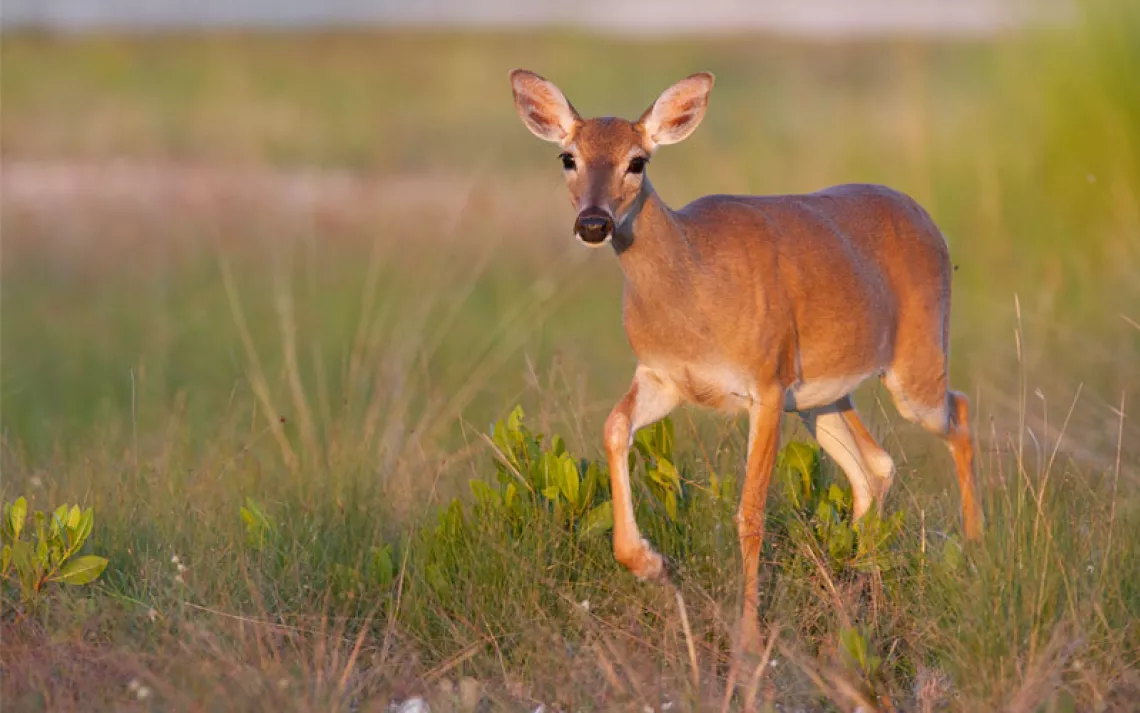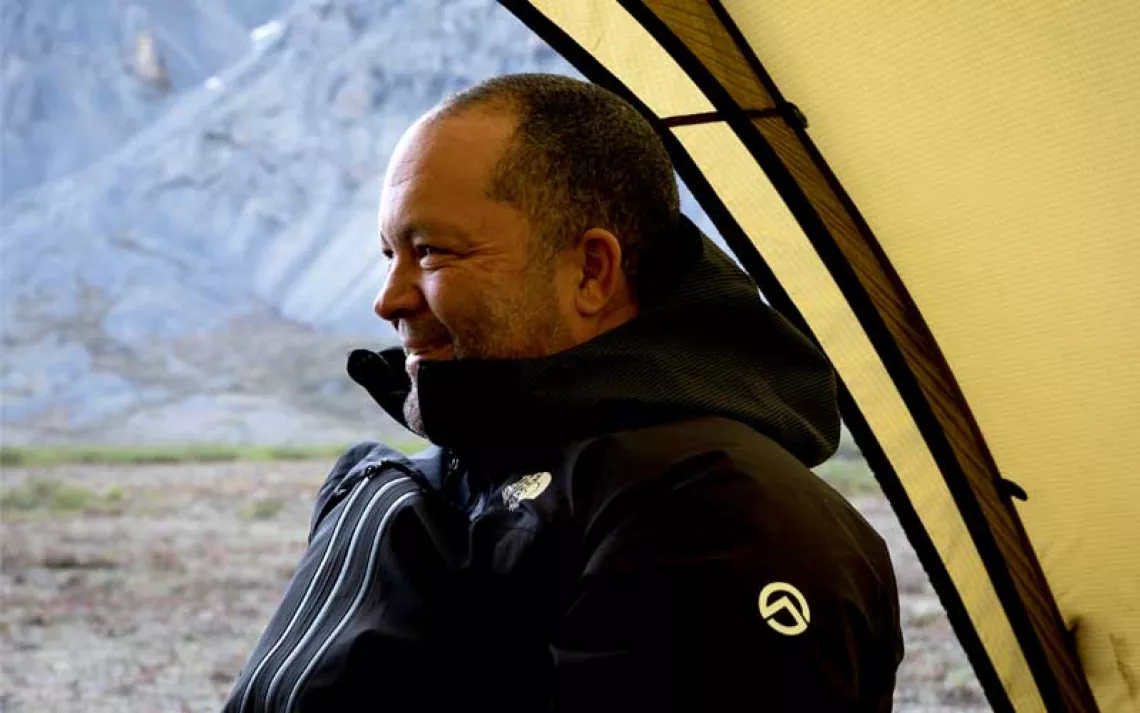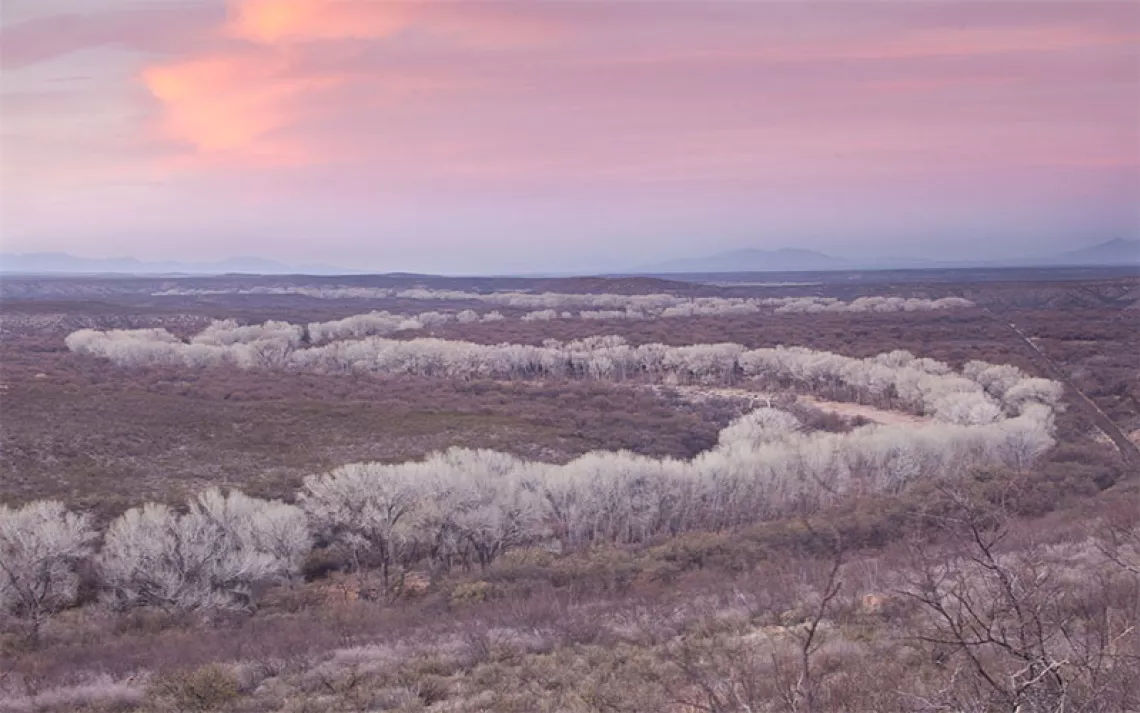Real Men Gather Musk Ox Wool
Just outside Nome, Alaska, the bushes are hung with qiviut, the insanely valuable underwool of the musk ox
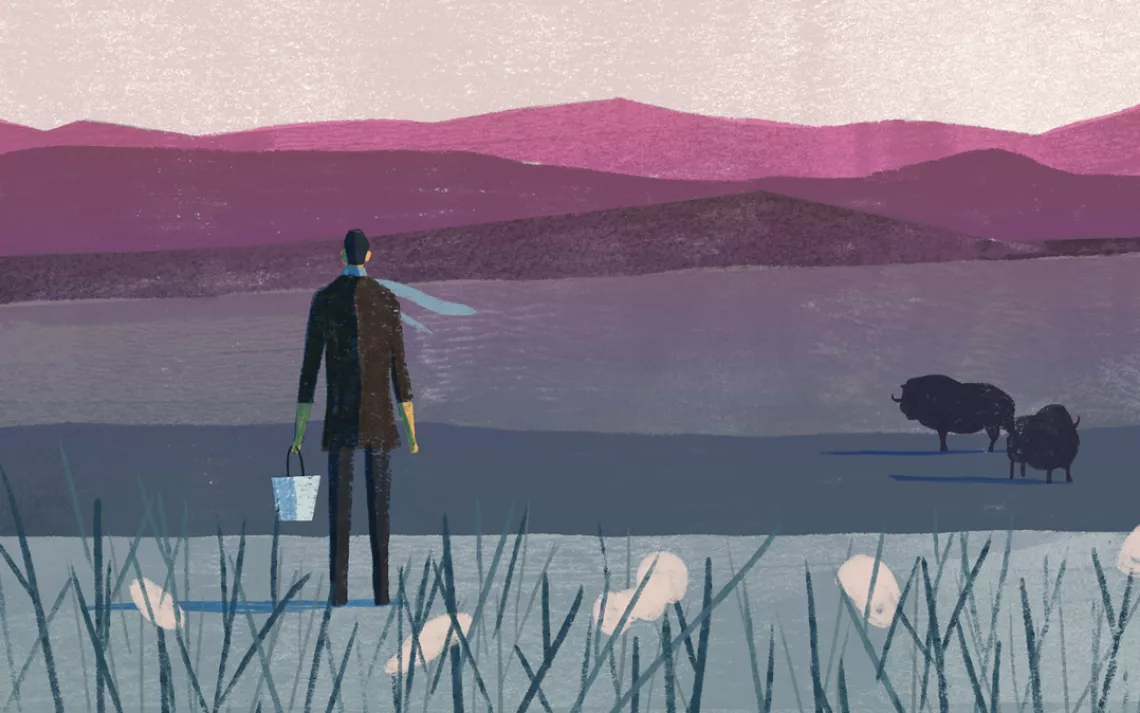
Illustration by Keith Negley
I step from the tundra into an alder thicket like a blind man off a curb into rush hour traffic. Although it is quiet in here aside from the whine of mosquitoes, my hackles rise. Was that a branch snapping up ahead?
In midsummer Nome, the birthplace of Alaska's gold rush, dense brush where grizzly bears feed and nap is exactly where you don't want to be, especially when the ocean's horizon blushes with midnight sun and shadows grow long and lean. But this is where Nome's new gold can be found—musk ox underwool. The gossamer fleece, which Alaska Natives call qiviut, is eight times warmer than sheep's wool, capable of keeping the oxen cozy at 50° below zero. Off-white, beige, smoke-gray, and chocolate-brown, qiviut is as lustrous and soft as babies' breath, and sells in stores for $100 per spun ounce.
To relieve their summertime itch, musk oxen take to the bushes, where branches and trunks strip them of their superfluous winter insulation. As browsers, musk oxen favor the thickets that clog creek beds and ditches into which melting permafrost drains—ideal nurseries for mosquitoes. But wet feet, bug bites, and even the risk of bear encounters seem a small price to pay for the miracle wool.
I follow a trail of dung pellets and crushed vegetation. Silky hunks and skeins snagged on branches signal the waiting mother lode—a foot-wide mop that looks like a badly made wig. I am poised, alert, and fully alive, in tune with my inner hunter-gatherer.
Despite the associated coursing adrenaline, gathering qiviut is not considered a masculine pastime here. "Real men" go out and shoot musk oxen—an undertaking about as challenging as dynamiting fish in a barrel. When musk oxen feel threatened, they line up in front of their calves in a wall of curved, embossed horns. Hunters can fell them one by one, whole herds facing death with the composure of statues. That's why the introduction of firearms by Yankee whalers at the end of the 19th century quickly extinguished musk oxen in Alaska's Arctic.
Shooting musk oxen is illegal close to Nome, however, and several herds have been loitering around, wildlife officials say, to avoid marauding bears. They rest and ruminate near the AC Value Center store, or play king of the hill on the same outcrop the dirt bikers love to shred. Drifting into people's yards, the beefy haystacks sometimes gore sled dogs tied up outside. (Some locals fear letting small children play outside when the "muskies" visit town.)
At Nome's airport, staff have posted inflatable grizzlies along the runway to deter the archaic ruminants. For good measure, they also set out sticks drenched with bear urine. (You can find it online as "predator pee.") All in vain: From a window seat during takeoff, I've watched bovine trespassers clip the runway's green margins.
The qiviut I gather is for my wife, Melissa. We got married recently, in a bare-bones ceremony at the courthouse after grabbing a witness at the post office. She is teaching herself spinning with a hand spindle; her output includes cowls, hats, scarfs, and shawls. On our windowsill sit mason jars with homemade lichen dyes for this kind of wool. Driving through town, she takes mental notes of the musk oxen's hangouts to track them the minute she gets off work. Clearly my spouse is hardwired for gathering, even if I have no inclination for hunting.
But I can't escape the Alaskan "something for nothing" mind-set, and being in nature brings its own rewards: a bird's nest cushioned with qiviut; white-headed ptarmigan flashing lipstick-red eyebrows; a weasel popping from its burrow like a jack-in-the-box; and, on a great day, bleating musk ox calves or head-butting bulls. I dream of sneaking up on them with a rake to rid them of their downy, stifling burden.
I sometimes collect next to my wife. I once again feel the flush of our courtship, like a bowerbird or fish-bearing tern, when I offer her a bag bulging with qiviut. She never was one for flowers.
 The Magazine of The Sierra Club
The Magazine of The Sierra Club
